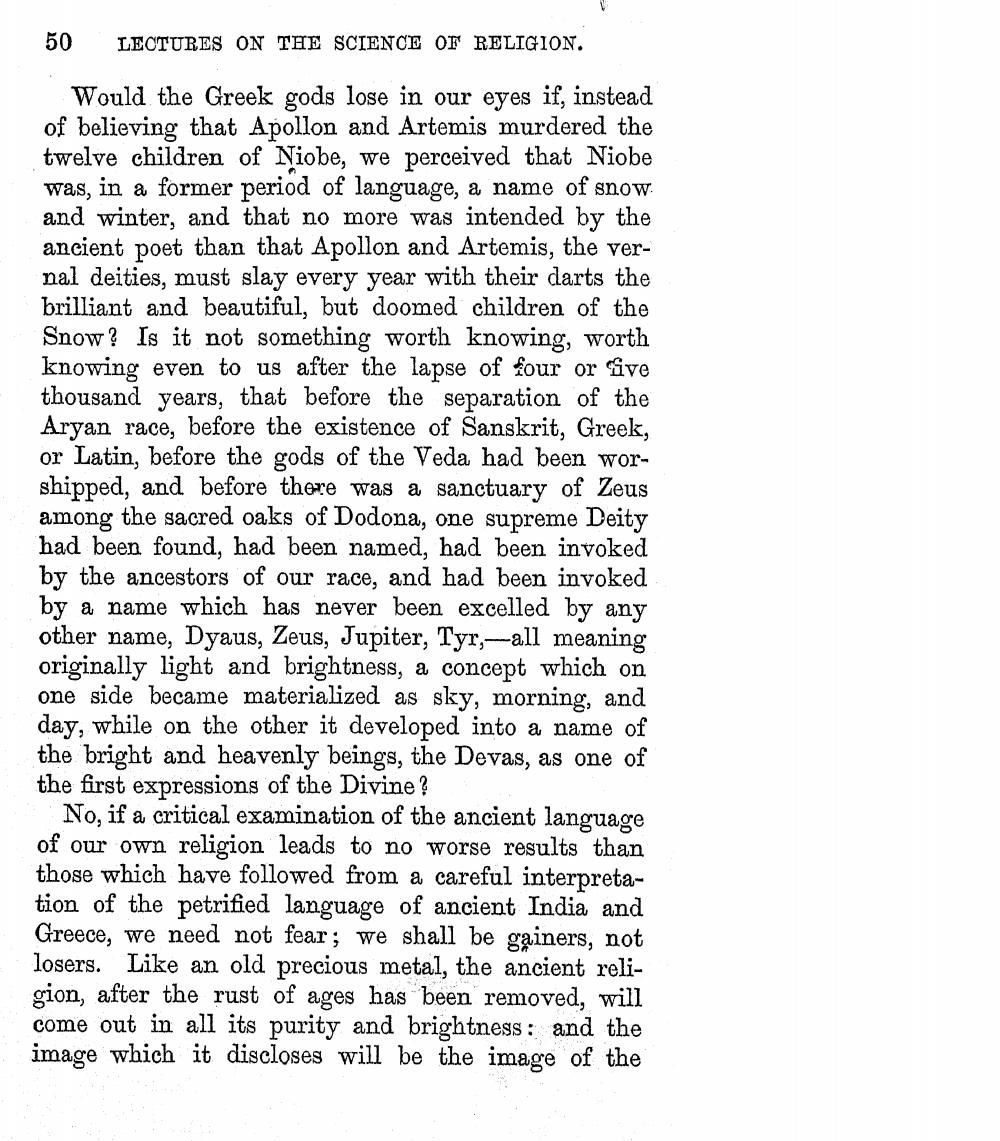________________
50
LECTURES ON THE SCIENCE OF RELIGION.
Would the Greek gods lose in our eyes if, instead of believing that Apollon and Artemis murdered the twelve children of Niobe, we perceived that Niobe was, in a former period of language, a name of snow and winter, and that no more was intended by the ancient poet than that Apollon and Artemis, the vernal deities, must slay every year with their darts the brilliant and beautiful, but doomed children of the Snow? Is it not something worth knowing, worth knowing even to us after the lapse of four or ive thousand years, that before the separation of the Aryan race, before the existence of Sanskrit, Greek, or Latin, before the gods of the Veda had been worshipped, and before there was a sanctuary of Zeus among the sacred oaks of Dodona, one supreme Deity had been found, had been named, had been invoked by the ancestors of our race, and had been invoked by a name which has never been excelled by any other name, Dyaus, Zeus, Jupiter, Tyr,-all meaning originally light and brightness, a concept which on one side became materialized as sky, morning, and day, while on the other it developed into a name of the bright and heavenly beings, the Devas, as one of the first expressions of the Divine ?
No, if a critical examination of the ancient language of our own religion leads to no worse results than those which have followed from a careful interpretation of the petrified language of ancient India and Greece, we need not fear; we shall be gainers, not losers. Like an old precious metal, the ancient religion, after the rust of ages has been removed, will come out in all its purity and brightness: and the image which it discloses will be the image of the




